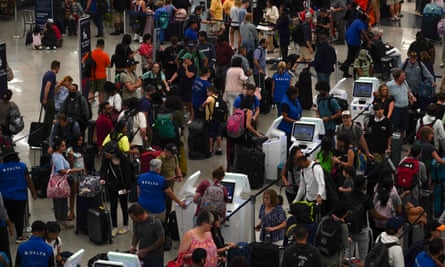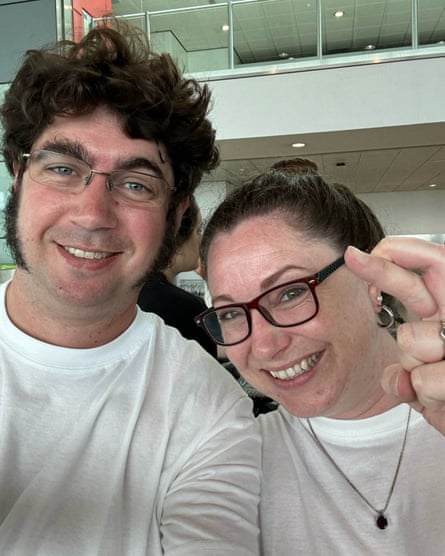The aftershocks of the Microsoft IT outage continued to ripple across the UK on Saturday as holidaymakers and patients suffered the brunt of the computer systems failure.
Customers experienced flight cancellations, faulty train ticket machines and failures in GPs’ prescription and appointment systems after a flawed security update from CrowdStrike, a US cybersecurity firm, crashed 8.5 million devices across the world running the Windows operating system.
By Saturday afternoon, travel companies and the NHS offered tentative signs that the problems were being fixed. Louise Haigh, the transport secretary, said that UK airports and train operators “have their IT systems back up and working as normal” and there would be “some delays and a small number of cancelled flights”. NHS England said that “the majority” of the computer systems were back online “in most areas” but warned there may be further disruption this week.

The impact of Friday’s chaos was still being felt by many. Nearly 7,000 flights were cancelled worldwide, including 408 in and out of the UK, on what was the first day of the summer holidays for most English schools, and expected to be the busiest travel day since October 2019.
On Saturday morning 48 more flights were cancelled, according to aviation analysts Cirium, and people travelling to Europe flocked to Dover to find an alternative route. The Port of Dover authority said it was seeing “hundreds of displaced airport passengers arriving” and warned that anyone travelling needed a ticket beforehand.
IT failures also affected rail travel on Saturday, with passengers struggling to buy tickets at Waterloo and Paddington stations in London, while South Western Railway said some of its ticket machines were still down.
Pharmacies and GPs were continuing to deal with the impact of the outage on Saturday. Patients found appointments had been cancelled at the last minute on Friday. The Royal Surrey NHS Trust declared a critical incident.
Prescriptions could not be sent through to pharmacies, some chemists said, which caused a delay in patients being able to receive their medications at the expected time. Clinicians used paper records and handwritten prescriptions instead.
after newsletter promotion

Dr Fari Ahmad, a GP in Cheshire, told BBC Breakfast on Saturday that her practice had been unable to give patients test results, which would cause “more issues later on in the week”. The National Pharmacy Association chairman, Nick Kaye, said the outage “will have caused backlogs and we expect services to continue to be disrupted this weekend as pharmacies recover.”
Microsoft’s vice-president for enterprise and operating system security, David Weston, said in a blog post yesterday that the company recognised “the disruption this problem has caused for businesses and in the daily routines of many individuals”.
He said: “We currently estimate that CrowdStrike’s update affected 8.5m Windows devices, or less than 1% of all Windows machines. While the percentage was small, the broad economic and societal impacts reflect the use of CrowdStrike by enterprises that run many critical services.”
Emmalinda MacLean and Eric Rosloff had expected to be at home in Los Angeles on Saturday morning after two weeks in Scotland, but found themselves at Heathrow instead.
Their connecting flight from Glasgow had been delayed on Friday, leaving them little wiggle room when they landed at Heathrow.
“We were running through the airport trying to make our connection but security stopped us and sent us to customer services,” MacLean said. “We waited in line for three hours,” her husband added. “And all the time our flight was still on the tarmac. But they wouldn’t let us on.”
Dozens of other passengers had similar problems, they said. After a night in an airport hotel, they returned on Saturday to try to get home.
Source: theguardian.com

















